Seven Once-Great Shows That Went Off a Cliff in Season 2
-
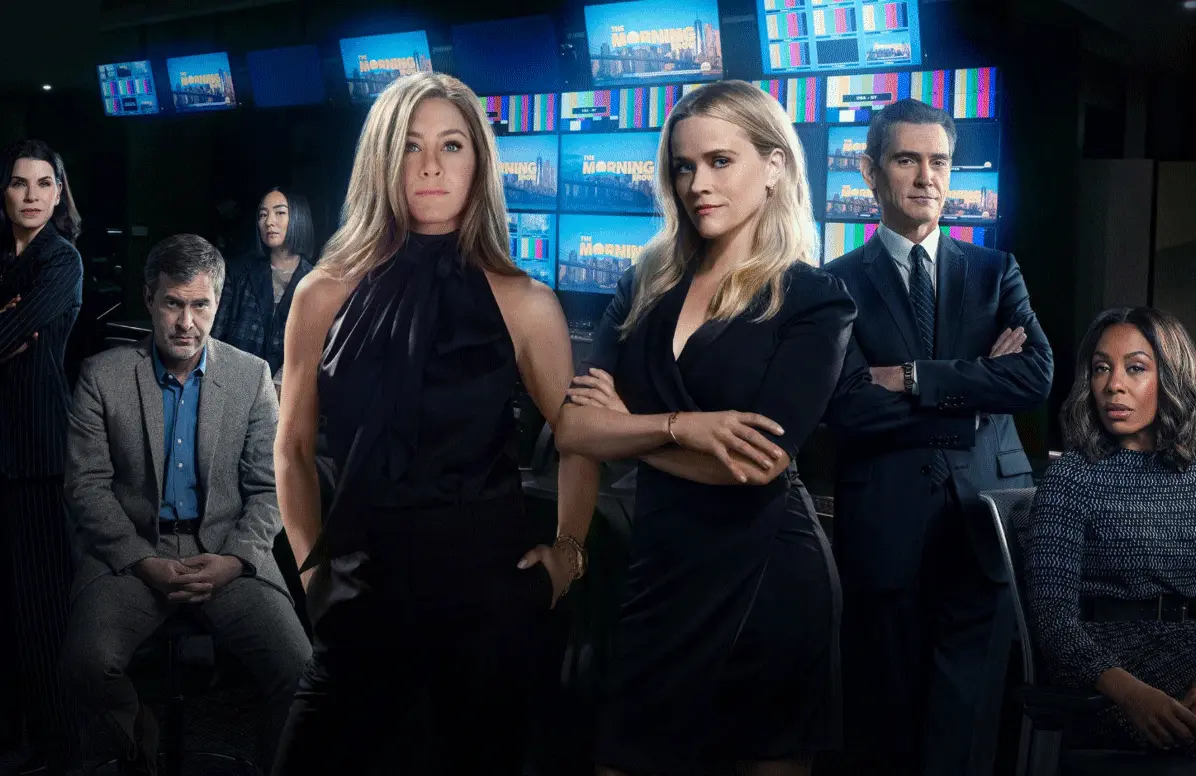 The Morning Show (Photo: Apple TV+)
The Morning Show (Photo: Apple TV+)Given how monumentally difficult it is to launch a TV series, it’s not surprising that so many now-classic shows have needed a season or two to find their footing. Take Seinfeld or Sex and the City, for example: the first seasons of these shows are at times almost unrecognizable from the beloved shows they became.
But what about the series with the exact opposite trajectory? The shows that managed to deliver a confident and compelling first season, only to fumble the ball thereafter? While it’s easy to bemoan the drop-offs in quality (and/or just plain confounding choices) that befell these series, the silver lining is that we can just go ahead and binge their initial runs before moving right on to something else with a minimum of guilt or FOMO.
Here are seven series with great first seasons that drove off a cliff in season two (literally, in at least one case):
Dead Like Me
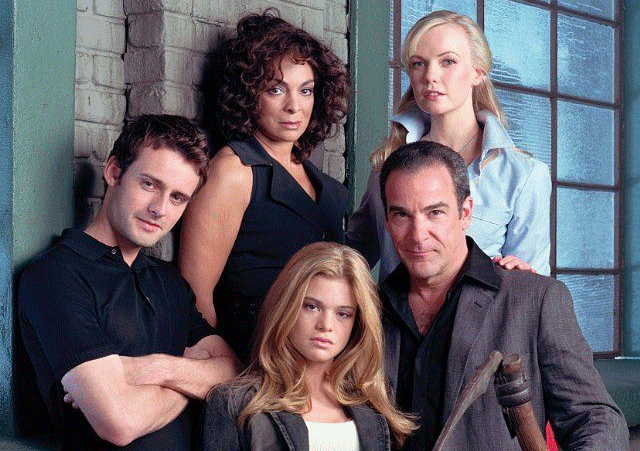
Before Bryan Fuller brought his delicious macabre sensibilities to Pushing Daisies and Hannibal, he created this underrated gem about a gang of actual lost souls — members of the lower-case walking dead — who have the thankless job of escorting living people to their scheduled demise.
It’s a premise that still feels fresh nearly two decades later, and the travails of newly-dead protagonist Georgia “George” Lass (Ellen Muth) make for some great pitch-black humor interspersed with hopeful philosophy, both of which are frequently doled out by team leader Rube (Mandy Patinkin). There’s also Jasmine Guy, masterfully out-deadpanning everyone around her.
Unfortunately, Fuller quit his showrunning duties on Dead Like Me after only a few episodes (due to conflicts not with Showtime, but with the producing studio, MGM Television). The remainder of the first season did a good job of completing George’s initial arc, but the series lost its spark after that, morphing into a fairly standard darkish-comedy procedural.
Heroes
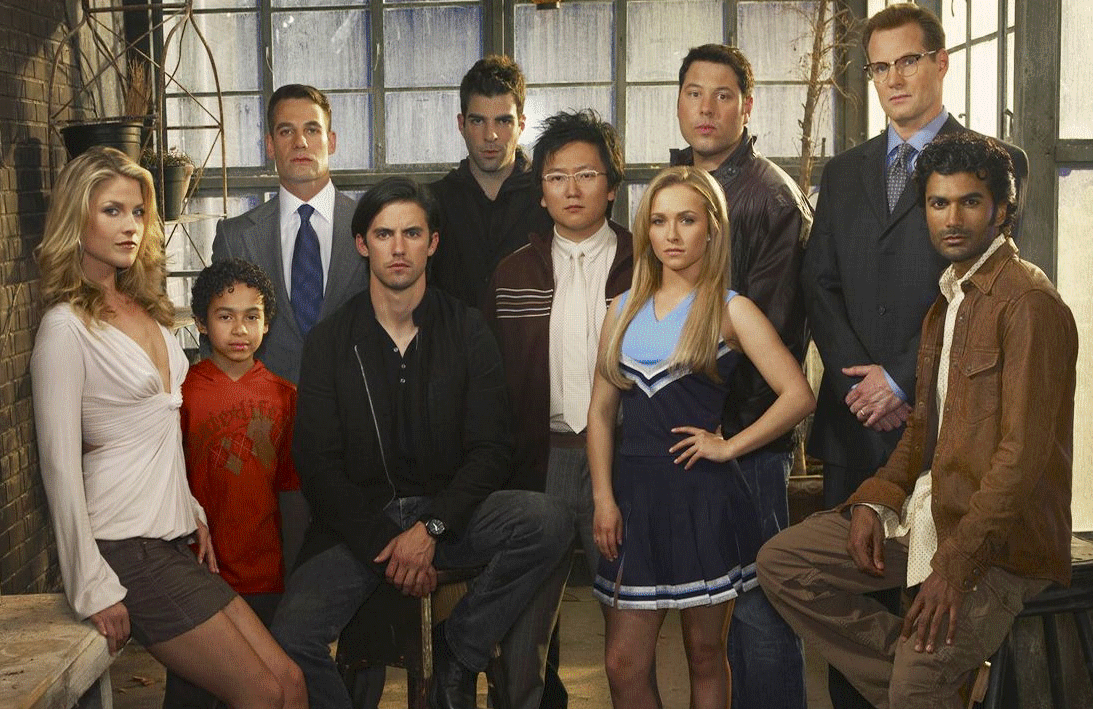
There’s a moment in the pilot episode of Heroes where each character is awe-struck by a solar eclipse, and as cheesy as it sounds, watching the show in its early days felt like the same kind of glorious shared experience.
Sure, the easiest synopsis of the series is “off-brand Marvel stuff,” but the actual MCU was years away when Heroes debuted, and its writers (including Bryan Fuller, already making his second appearance on this list) knew how to generate the same kinds of foreshadow-y “oooh!” moments now found in Marvel post-credits scenes. (I’m not going to say that everything about the series has aged well, but using comic book artistry to depict scenes that would happen in future episodes was a legitimately cool device.)
Like another mega-pop-culture touchstone, Game of Thrones, the show purposely kept major characters separated long enough to make fans eager to see what would happen once they intersected. Combine all this with a mysterious serial-killer supervillain, and you had some serious appointment television.
But... live by the network TV sword, die by the network TV sword. Contractually prevented from killing off (or even sidelining) almost any major characters, the producers quickly ran out of surprising cards to play. Mystery and suspense in Season 1 later gave way to relationship drama, and even the most menacing characters were basically neutered through redemptive backstories.
Downton Abbey
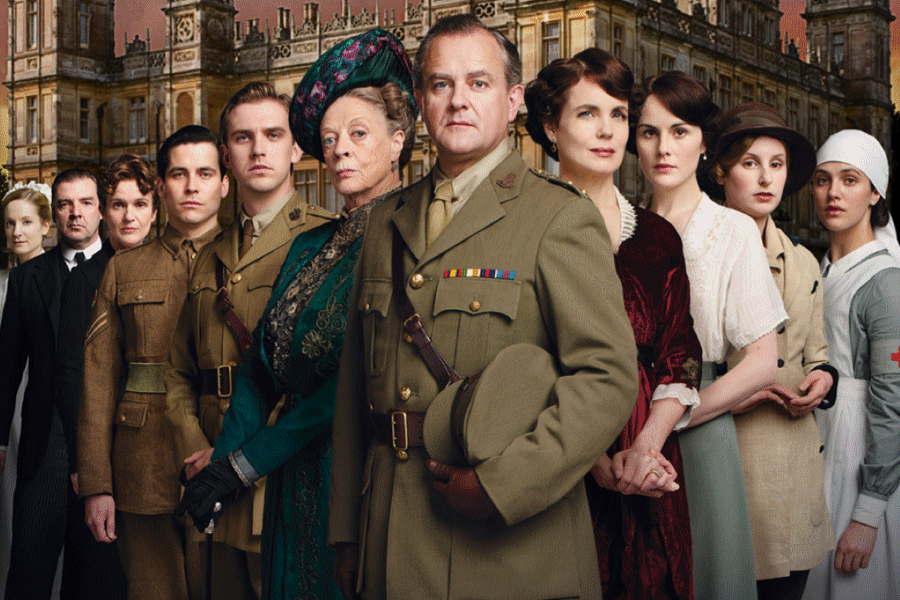
This may be a controversial inclusion, and we’ll stipulate that Downton Abbey remained perfectly watchable for years. But the reason the show managed to grab so many people’s attention so quickly was its willingness to be far more daring, outlandish, and just plain wicked than most other programs sponsored by Viewers Like You.
The Dowager Countess (Maggie Smith, carried over almost whole-cloth from creator Julian Fellowes’s screenplay for Gosford Park) was delightfully acerbic and blissfully unaware of weekends; footman Thomas (Robert James-Collier) genuinely seemed like he might murder anyone who crossed him; and, of course, Lady Mary (Michelle Dockery) sent a handsome Turk to the grave with the power of her magic, um… smile?
Generally speaking, the show was nearly as merciless as Gosford Park in its accurate depiction of class division, and similar to Succession in its willingness to foreground Rich People Problems. But from the second season on, the edges started to disappear as if they’d been carefully chamoised off by Carson (Jim Carter) himself. There seemed to be a conscious effort to make characters more righteous and relatable, starting with the decision to open up Downton as a military hospital and extending to the de-clawing (in different ways) of the Dowager Countess and Thomas.
We understand the desire and even the need to add dimension to fictional people who initially come off in very specific ways, but other shows like Succession have proven that it’s possible to make characters more complex and nuanced without forcing them to roll over for belly rubs. While there’s nothing wrong with the kind of TV comfort food that Downton Abbey became, it’s disappointing to see a show take fewer and fewer risks as it goes along.
Sherlock
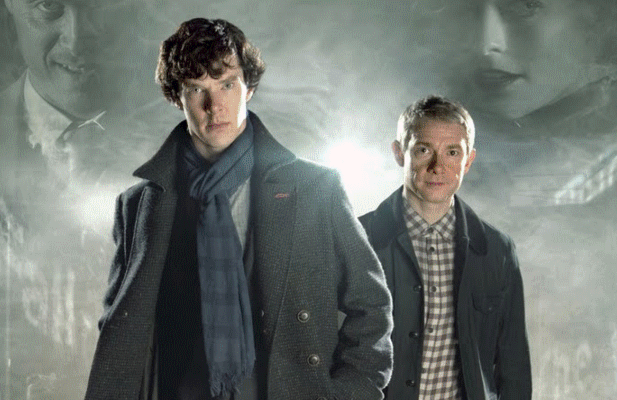
Sherlock (almost) always arrived in three-episode seasons, and the unwritten rule of thumb was that at least one of those episodes would be the designated clunker. But the first season’s whipping boy, “The Blind Banker,” is still good enough that we’ll revisit it from time to time. A solid mystery with a clear throughline and some great architecture porn (hey, we might take up a career in finance if we got to work in the Gherkin!), its only real sin is failing to live up to the truly-great episodes that surround it, “A Study in Pink” and “The Great Game.”
But when Season Two continued the tradition, sandwiching “The Hounds of Baskerville” in between “A Scandal in Belgravia” and “The Reichenbach Fall,” the system was already failing. “Baskerville” verges on straight-up unwatchable, aspiring to Columbo levels of people sitting around waiting for things (but with no ‘70s decor and fashion at which to gawk). And although “Belgravia” and “Reichenbach” both have their moments, they’re exemplars of a new-and-unimproved method of writing Sherlock installments: moving the plot forward in manic bursts, occasionally screeching to a halt, sometimes rebooting the entire episode halfway through. (Importantly, the opening moments of “Belgravia” would also serve as early proof that Sherlock had no good way to resolve cliffhangers.)
Subsequent seasons were even more frenetic and jumbled, but at least creators Steven Moffat and Mark Gatiss eventually gave us Dracula to demonstrate that they were capable of much worse.
The Morning Show
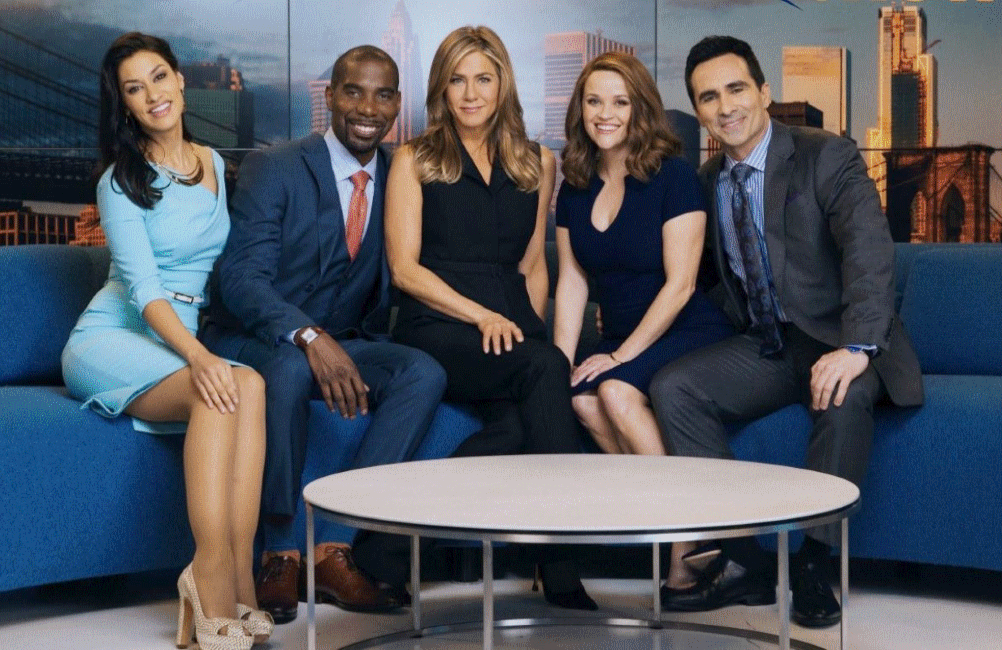
Perhaps one day a tell-all book or podcast will explain just what the hell happened creatively between the first and second seasons of this series, carefully positioned and extravagantly funded to be Apple TV+’s proof of concept (even though, in hindsight, the far less expensive Ted Lasso filled that role just fine on its own).
What works so well about The Morning Show’s initial ten-episode run is its pointed refusal to be important television. It is unabashedly concerned with ego and ambition, and in that respect it is far more accurate about the world of media than anything from the quill of Mr. Sorkin. To the extent that the first season does venture into capital-i Issues, it grounds them in relentlessly selfish behavior. As a result, the powerful season finale truly feels earned; sure, Alex and Bradley (Jennifer Aniston and Reese Witherspoon) deliver some real social justice, but they’re also sticking it very personally to those who’ve crossed them.
Perhaps we should have spotted the red flags in the trailer for the second season, but we just assumed that images like “Alex chops wood by a snowy cabin, reclusive ‘80s action star-style” (which genuinely made me howl) would be offset by the same commitment to more-or-less verisimilitude that the first season had. Well, nope! Practically from the jump, the 2021 iteration of The Morning Show seemed determined to burn down every inch of goodwill that it earned the first time around.
We don’t even need to get into its Newsroom-style re-litigation of the early days of COVID, which could have been a dealbreaker all by itself; it’s the confounding character choices all the way across the board that made the show virtually unrecognizable. (If Gugu Mbatha-Raw’s Hannah is resurrected to sell poison milk to schoolchildren, we won’t be shocked.)
Melodrama in and of itself is no sin; there’s nothing wrong with steering toward the version of a scene or storyline with the biggest emotional punch. There is something wrong with conjuring fireballs of narrative insanity and flinging them in every possible direction at once. And yes, we understand that we’re living in an age where the Ryan Murphy oeuvre and shows that rhyme with “Fliverdale” are celebrated for hurtling themselves directly into the fiery pits of Mount Batshit, but this used to be a series that made sense even when everyone was yelling.
Prison Break
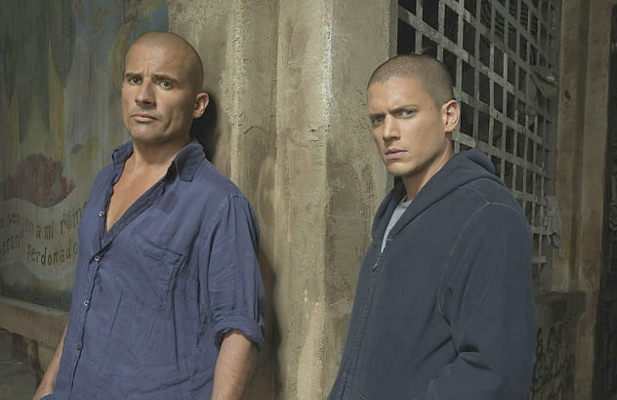
God love them, Fox has been making questionable bets on high-concept action-adventure shows since the early ‘90s, and to this day, Prison Break stands as one of the few times the network picked a winner. Well timed for the advent of big-screen HDTVs, the series thrived on flashy, gritty visuals in equal measure to its sharp-enough writing.
Bottom line, it did what it said on the tin; we tuned in to see Michael Scofield (Wentworth Miller) navigate the Fox River State Penitentiary using only his dizzying intellect and more tattoos than a Ray Bradbury anthology, and that’s what we got. Cool bits of technical ingenuity? Michael falling in love with the prison doctor he’s secretly manipulating? An increasingly giant hole in the ground that everyone hopes will remain undetected? Check, check, and CHECK!
Alas, once Michael and his motley band of confederates actually did escape, the series was forced to pivot from The Slick Shawshank Redemption to The Maudlin Fugitive, a transformation it didn’t quite survive, even with William Fichtner bossing it up as Nordstrom Rack Tommy Lee Jones.
It didn’t help that most of Season 2 took place in a Texas subdivision, obviously one of your sexier TV show locales. The big twist that put Michael back behind bars at the end of the season (but this time in Panama, because... why not) felt like some real passive-aggressive fanservice: “We get it! You only want to see him in prison!” Yes we did, but once was enough.
Jessica Jones
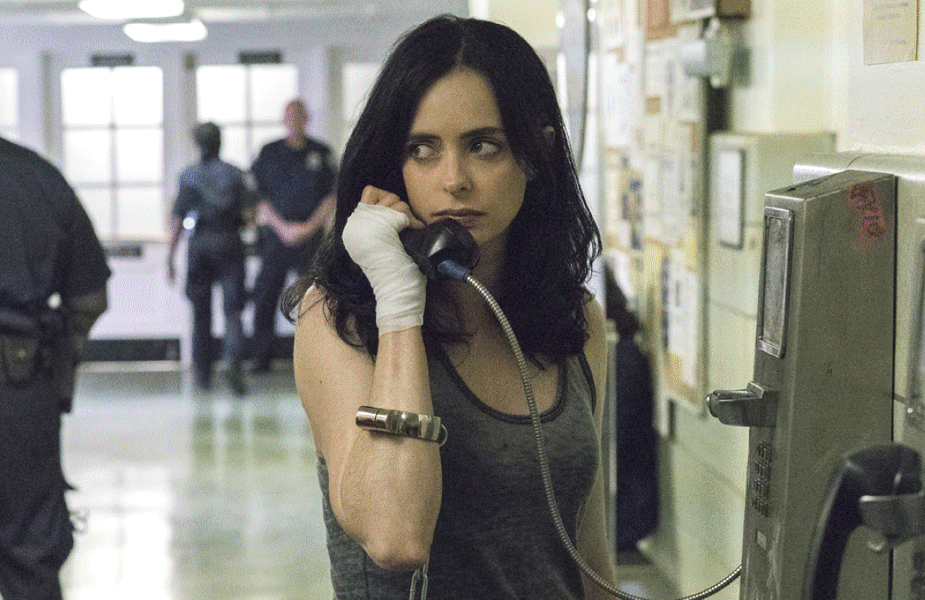
The mid-’10s Marvel/Netflix series were a mixed bag at best (the less said about Iron Fist and The Defenders, the better), but in their better moments they made a strong case for carving out an edgier creative playspace distinct from the carefully-manicured MCU. Jessica Jones and its titular boozehound (indelibly portrayed by Krysten Ritter) could never have fit into the slick, safe, synergized world of Disney+.
Showrunner Melissa Rosenberg took every ounce of darkness she’d deployed on Dexter and piled some more on top as she adapted the comic series Alias (which obviously needed a name change for the small screen) into a truly harrowing depiction of PTSD, male privilege, and the limits of agency. The first season is truly one of the most bingeable productions to bear the Netflix logo, as we watch Jessica grapple with smarmy mind-controller Killgrave (no less than David Tennant) and her own humanity, which she possibly resents just as much. And, much to its credit, the show didn’t try to wring multiple seasons’ worth of juice out of this particular storyline; its end was truly an end.
The problem was knowing where to go from there, and in its subsequent two seasons, Jessica Jones suffered from the same dilemma as Dexter: Where do you go when you’ve already probed the darkest depths of the soul? In both cases, the answer turned out to be “nowhere particularly interesting.” Still, those first 13 episodes are gold, and the spirit of Jessica Jones lives on in FX/Hulu’s Y: The Last Man, another female-centric comic originally penned by a man but made into compelling TV by a gender-diverse team.
Nick Rheinwald-Jones is Co-Artistic Director of Spy Brunch LLC, a Los Angeles immersive theatre company. He has written about film and TV for Vulture, The AV Club, Decider, and Previously.TV.
TOPICS: The Morning Show, Dead Like Me, Downton Abbey, Heroes, Marvel’s Jessica Jones, Prison Break, Sherlock, Bryan Fuller